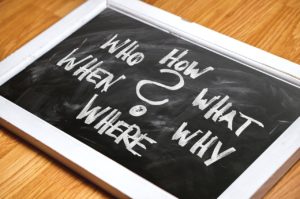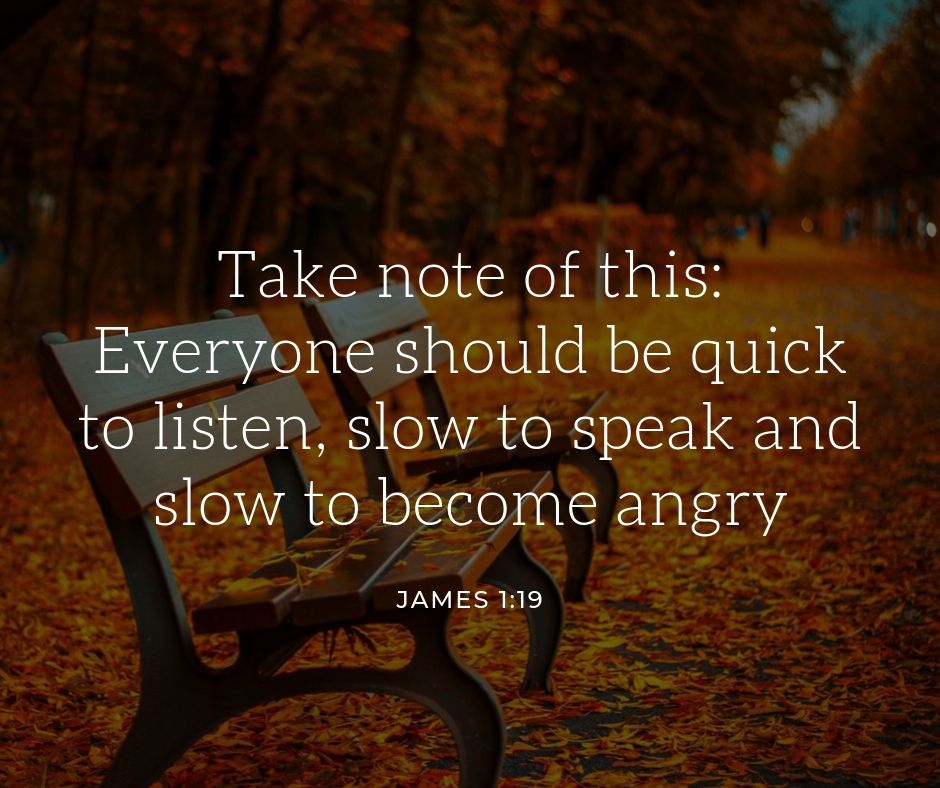I saw a book this morning about a man who lived this amazing life all through the twentieth century, but he didn’t learn to read until he was 98. And my heart just broke for him.
Ninety-eight years of not being able to make sense of words in a book or newspaper. Or the signs in a grocery store. Or on doctor’s instructions. He was separated from so much of life because he couldn’t read.
And I don’t want that for you. You have to learn to read. Obviously, I want you to learn to read words and sentences. I’m absolutely committed to title education and libraries and getting more books into the hands of more children.
But there are three things I’m convinced that every one of us has to learn to read.
Learn to Read … Culture
We have to be able to see and understand the culture around us.
This includes people. Reading body language. Facial expressions. Tics and tells for when they’re hiding something. From our kids to political candidates. Whether it’s a Bible teacher or a celebrity spokesperson, we can’t just get sucked into a name or a pretty face. We have to learn to read people.
But culture is about big ideas and the push-and-pull of different viewpoints. It’s built from history, and each generation adds its own characters and values to the discussion. And if you’re going to have any influence in your life and your world, you have to learn to read culture.
We have to have a good grasp of history. We need to know what people mean by the words they say and how those ideas sometimes change over time. It’s important to listen to real people and their real stories and acknowledge that our culture is different from other people’s. And that it’s okay.
You don’t have to engage everywhere and in every discussion. Each of us has spaces, topics, ideas, or callings that push us toward particular aspects of culture. But we need to be paying attention. Listening well. Responding respectfully so we can learn to read culture.
Learn to Read … Arguments
I don’t mean actually reading them, like legal briefs or something. Reading an argument means knowing what’s being said to you and why. It requires reading both sides of any story. And above all else, asking good questions.
Good questions are always the key to critical thinking. To finding out what’s going on behind the words. Because arguments are always trying to get something out of you.

Marketing is trying to get you to click or buy. Social organizations are trying to get you to give or invest. Politicians want you to vote. We know that if we dress it up in a pretty face and put a social media barrage behind it, it’ll sell.
Instead, you have to be paying attention to what they’re actually saying (and what they’re leaving out). Do they have proof? Is their conclusion logical? And most importantly … what is their end game?
If you can’t read an argument, you’ll always be someone’s stooge. You’ll be deceived, used, and sometimes abused. You’ll be swept away by the lies and lines of anyone who’s talking.
We live in an urgent, instant-gratification, visual-based society. Learning to read arguments is none of those things. But even though it’s hard, you can do hard things. And this is one of the most important.
Learn to Read … The Bible
I cannot, cannot, cannot express how important this one is. Not just thinking about reading the Bible. Or wanting to. Not collecting IG memes of Bible verses or reading some teacher’s explanation of a passage.
You have to learn to read the Bible, for yourself.
Learning to read the Bible means going to it every day. It means opening to a passage and reading God’s actual words. It means thinking about them and praying for the Holy Spirit’s help in understanding and applying them.
And this is so incredibly important. Because when we learn to read the Bible, we find truth that will anchor us against all the lies and lines of culture and marketing. And we unleash God’s power into our messy, real lives. We will watch him change things, change people, change us.
John 8:31–32
This is Jesus’s point in John 8:31–32. “To the Jews who had believed him, Jesus said, “If you hold to my teaching, you are really my disciples. Then you will know the truth, and the truth will set you free.”
We like verse 32. We use it by itself all the time, but once again, we get it wrong when we separate that part from the rest of its idea. Verse 32 starts with “Then.” It’s a conclusion word: verse 32 is the result of verse 31.
To the Jews who had believed in him – Jesus is talking to believers only here. The truth doesn’t necessarily set everyone free. It always helps. It’s the only good foundation and sure anchor. But the promise isn’t generic here.
If you hold to my teaching – This is it. My teaching, Jesus says. We have to learn to read the Bible. It’s important. The promise is based on knowing what God says and holding on to it relentlessly.
You are really my disciples – Our connection to God’s words and our faithfulness to them is fundamental to our relationship with Jesus. We aren’t Christians because we say so. We’re Christians because we have a real, live, growing relationship with God, and that comes through his word (Romans 10:17).
Then you will know the truth, and the truth will set you free – We like this part a lot. Who doesn’t want to be free? And this is God’s promise. Based on his word and in relationship with Jesus, the truth will set us free. But then, in the rest of the passage, Jesus uses these words to challenge those who thought they were closest to God but really weren’t. They didn’t recognize God’s words because they didn’t really belong to him. They missed out on the freedom the truth will bring. And so can we.
My Ultimate Goal
I want you to live real. To be able to engage with other people and ideas and culture and arguments so that you aren’t swept away by deception and fluff into a shallow, empty existence. I don’t want you to miss all that God has for you, right now.
The fundamental piece for that vision is God’s Word. It’s the anchor. It alone is the truth we need. And the thing I want most of all is for you to learn to read your Bible. To understand it so well that you can recognize lies, grow in truth, and experience the real-life wholeness that only comes through relationship with God.
It takes time and energy and effort and practice. And nothing in our culture or our selves is inclined to those things. But it’s worth it. The Bible is worth it. Jesus is worth it. Because he is better than any other thing.



